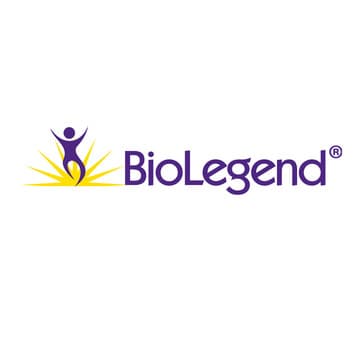
Supplier:
BioLegendCat no: 570009
Recombinant human IL-1alpha (ELISA Std.)
Prices direct from BioLegend
Quick response times
Exclusive Biosave savings/discounts
SPECIFICATIONS
Catalog Number
570009
Size
4 pack
Applications
ELISA
Gene Id
3552
Storage Temp
4 C
Concentration
Shipping Temp
Ambient RT
Storage Buffer
Upon receipt, store unopened vials at 4C immediately and use within 12 months from date of receipt. Prior to use, reconstitute the lyophilized powder with 0.2 ml of PBS containing a carrier protein (e.g., 1% BSA, protease free), pH7.4. Re-cap vial, vortex. Allow the reconstituted standard to sit at room temperature for 15 minutes, vortex again to mix completely. The reconstituted standard stock solution can be aliquoted into polypropylene vials and stored at -70C for up to one month. Do not re-use diluted standards. Use a manual defrost freezer and avoid repeated freeze thaw cycles.
Alternative Names
Interleukin-1alpha, LAF, EP, LEM, MCF/MNCF
Regulatory Status
RUO
SUPPLIER INFO
Email:
info@biolegend.comMore from BioLegend
Applications
FC, ICC
Hosts
Mouse
Reactivities
Hum
Applications
FC, ICC
Hosts
Mouse
Reactivities
Hum
Applications
FC, ICC
Hosts
Mouse
Reactivities
Hum
Applications
FC, ICC
Hosts
Mouse
Reactivities
Hum
Applications
FC, ICC
Hosts
Mouse
Reactivities
Hum
Applications
FC, ICC
Hosts
Mouse
Reactivities
Hum
Applications
FC, ICC
Hosts
Mouse
Reactivities
Hum
Latest promotions
Spend less time on DNA cleanup so you can do more science. The MSB Spin PCRapace is the fastest way to purify your DNA from PCR, restriction digestion, and...
New brilliant antibodies, and new lower prices!For flow cytometry reagents in general, \"bright is better.\" The violet-excitable BD Horizon™ BV421 and...
As an incentive to qualify our BSA, we are offering a 20% discount when you purchase your first 100g, 500g or 1000g of any grade of Bovine Serum Albumin....
It is not every day that you are given something for nothing. We are giving away additional spectrophotometer software.Cecil Instruments have enhanced the...
We're so sure that you'll prefer Cayman Assay kits over your present brand that we're willing to give you a free assay kit to prove it!
For the past decade scientists have extensively used ATS secondary toxin conjugates to make their own targeted toxins for in vitro use.The ability to combine...
10% Discount on 2 Rabbit Polyclonal Antibody Service. With over 20 years experience, SDIX has developed into the premier US custom antibody producer,...
Did your supplier increase the price of Fetal Bovine Serum? Did they substitute the US Origin with USDA? Well say no more! Innovative Research is still...
Bulk Cytokines with Custom Vialing.20 - 50% off cytokines, growth factors, chemokines and more...For a limited time Cell Sciences is offering substantial...
Jenway’s 73 series spectrophotometer range provides four models with a narrow spectral bandwidth of 5nm and an absorbance range of –0.3 to 2.5A,...
Are you planning to have a customised antibody made for your research?Since 2000, Everest has been producing a catalog containing thousands of affinity...
Top suppliers
United States Biological
230753 products
Carl Zeiss Microscopy
27 products
Promega Corporation
11 products
Panasonic Healthcare Company
5 products
Life Technologies
1 products
Nikon Instruments Europe
11 products
Olympus Europa Holding GmbH
3 products
Leica Microsystems, Inc.
10 products
GE Healthcare Life Sciences
2 products
Tecan Trading AG
19 products
Beckman Coulter, Inc.
1 products
AB SCIEX
3 products
BD (Becton, Dickinson and Company)
1 products
RANDOX TOXICOLOGY
5 products
Randox Food Diagnostics
6 products


























